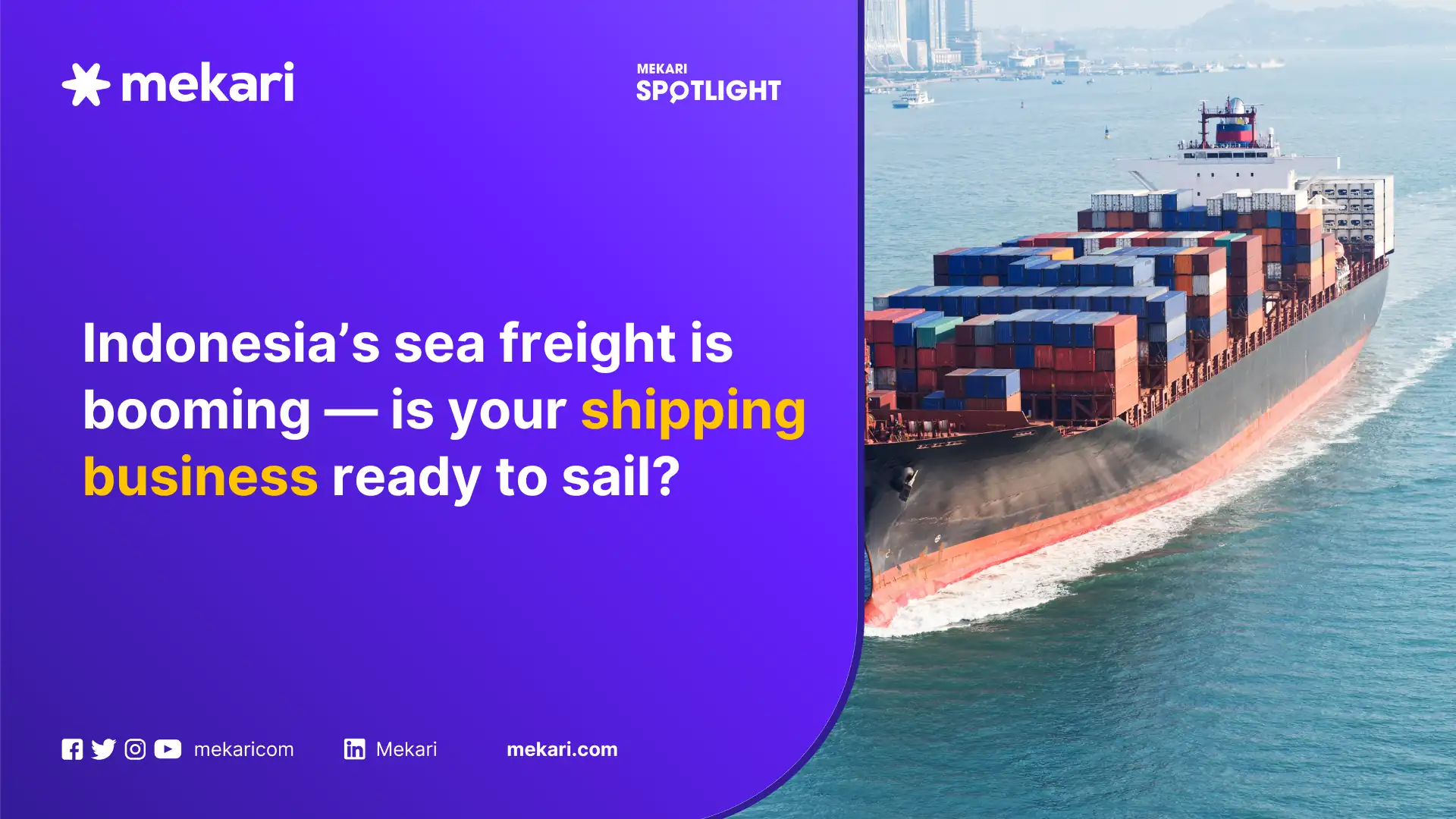With a population ranked fourth worldwide and Southeast Asia’s economic giant, Indonesia presents a haven for entrepreneurs, both local and international.
Indonesia boasts abundant natural resources and a growing population dominated by a productive workforce. Moreover, Indonesia has demonstrated strong economic and investment stability, even amidst global economic crises.
However, starting a business in Indonesia requires a good understanding of local processes and regulations, including the company registration process. Read further to learn about legal requirements, potential challenges, and best practices in registering and establishing a company in Indonesia.
According to BKPM’s report, in 2023, foreign investment realization in Indonesia reached Rp744 trillion. This figure is equivalent to 52.4% of the total national investment realization.
Types of legal entities for foreign investors
Indonesia offers various business entities, some of which are available for foreign investors:
1. PT PMA (Foreign Investment Limited Liability Company)
This type of company is a limited liability company where some shares are owned by foreign groups or individuals. Its structure and function resemble that of an LLC in Western countries.
It’s highly favored among foreign investors due to its relatively simple requirements. However, certain sectors in Indonesia are restricted or partially closed to foreigners, detailed in the Positive Investment List. In cases of partial closure, foreign investors need an Indonesian partner to establish businesses in those sectors.

Minimum requirements for foreign-owned companies include:
- Having at least two shareholders who can be foreign individuals, foreign corporations, or a combination of both
- At least one local director and one commissioner, whether foreign or local
- A fully paid-up minimum investment of Rp10 billion
2. Representative office
Representative offices in Indonesia are suitable for foreign companies exploring the Indonesian market. Allowed activities are limited to market research, promotion, and acting as agents for buying or selling on behalf of the foreign parent company.
Licenses for these companies expire after two years and need renewal to continue business in Indonesia. It’s important to note that representative offices cannot generate profits in Indonesia, and all commercial transactions must be managed by the foreign parent company.
Unlike other foreign-owned companies in Indonesia, there is no minimum capital requirement for representative offices, and they allow the employment of both local and foreign employees.
There are three types of representative offices in Indonesia: Foreign representative office, Foreign construction representative office, and Foreign trade representative office.
3. Subsidiary office
Subsidiary companies in Indonesia are formed as limited liability companies (LLCs), with the most appropriate type being PT PMA if the parent company is foreign. Subsidiaries are separate legal entities established by business owners to access the Indonesian market.
They are considered tax residents and are subject to a corporate tax rate of 25%. Minimum requirements for foreign-owned companies include:
- Having at least two individuals or foreign corporations or a combination with local shareholders
- At least one local director
- One foreign or local commissioner.
Required licenses and registrations
Here is the required licenses for registering foreign-owned companies intending to operate in Indonesia:
1. Company name reservation
The first step involves checking the availability of your desired company name in Indonesia. Utilize the Online Single Submission (OSS) system for this verification. If the name is available, proceed to reserve it promptly. This chosen name will serve as the official identity for all documentation and correspondence.
2. Deed of Establishment
To legally operate in Indonesia, it’s crucial to possess a notarized Deed of Establishment containing comprehensive company details.
This document includes information about shareholders, directors, and the company’s business scope. It must be signed by an Indonesian notary and approved by the Ministry of Law and Human Rights.
3. Domicile letter
As evidence of your business address, you must obtain a domicile letter from the building management where your office is located. If you utilize a virtual office, the provider can issue this letter. Subsequently, submit the Domicile Letter to the local district office to obtain a domicile certificate.
4. Tax ID number (NPWP) and Business Identification Number (NIB)

After completing the above steps, you can apply for your company’s Tax ID Number (NPWP) and Business Identification Number (NIB). The NIB, a 13-digit number, is crucial for business, commercial, and operational licenses.
It also serves as the company registration number, import identification number, provides customs access, and acts as proof of participation in social security programs (BPJS Kesehatan and BPJS Ketenagakerjaan). Notably, the NIB can be revoked if the business engages in activities that violate Indonesian standards and regulations.
5. Additional licenses/permits
Depending on your business sector, additional licenses or permits may be required. For instance, restaurants need a food business license, while manufacturing companies need an industrial business license. These can be obtained through the OSS system.
Minimum investment requirements and shareholding structures
There are several minimum requirements and shareholding structures to follow when establishing a business in Indonesia:
1. Minimum investment requirements
The Indonesia Investment Coordinating Board (BKPM) sets the minimum capital requirements for PT PMA (Foreign Investment Companies) at Rp10 billion, depending on the industry foreign investors are involved in.
This minimum capital amount serves as a rough plan and will be invested according to the company’s investment plan over three years. The minimum investment rate for the first four digits in the Indonesian Standard Industrial Classification must be more than Rp10 trillion, excluding land and buildings within one business activity.
2. Shareholding structures
PT PMA must have a minimum investment of Rp10 billion, with placed and paid-up capital of Rp2.5 billion. Shareholding percentages are determined based on the nominal value of shares, with each shareholder required to hold a minimum of Rp10 million in share value.
3. Negative Investment List (DNI)
The DNI is a list of business sectors compiled by the government to inform potential investors about businesses that are not permitted in Indonesia and various regulations, especially regarding joint ownership.
The DNI allows 100% foreign investment in over 200 business lines, with several incentives for priority sectors. However, certain titles, such as Right of Ownership, are only available to Indonesian citizens, while others like Right to Use are open to foreign investors.
Please note that these regulations may change over time, so it’s important to check the latest rules and regulations.
Role of BKPM as Investment Coordinating Board
By bridging the business world and the government, BKPM is responsible for creating a more conducive investment climate for Indonesia. This includes efforts to enhance the ease of doing business in Indonesia, which is crucial for attracting foreign investment.
Here are some supports provided by BKPM to foreign investors:
1. One-stop service

BKPM serves as a one-stop service center for investors, providing information on investment opportunities, assistance in obtaining required permits and licenses, and advice on navigating the regulatory environment in the country.
2. Fiscal facilities
The Indonesian government offers investment incentives such as customs duty exemptions, a 30% net income deduction from total investment in the form of fixed assets, and depreciation of intangible assets.
3. Enhanced investment access
BKPM plays a crucial role in improving investment access in Indonesia. It collaborates with various stakeholders to ensure that both foreign and domestic companies can invest in Indonesia smoothly.
4. Improved investment quality
BKPM works with various stakeholders to ensure that investments made in Indonesia bring maximum benefits to the Indonesian economy.
5. Introduction of innovation in investment
BKPM also ensures that both foreign and domestic companies can leverage the latest technology and innovation in their investments in Indonesia.
Timelines and costs
Understanding the registration process involves knowing how long it usually takes and what fees are involved.
1. Timeline for the registration process
Typically, the registration process for foreign companies in Indonesia spans from 1 to 3 months. The duration varies depending on the business registration location and document completeness.
However, since 2020, the registration process in Indonesia, particularly in Jakarta, has been expedited. In just four weeks, your PT PMA could be ready to operate.
2. Associated costs
The total cost of registering your company in Indonesia depends on the package until your business starts operating. This cost ranges from IDR 3,500,000 to IDR 10,000,000.
These expenses cover notary fees, government registration, NPWP processing, domicile handling, deed authentication by the Ministry of Law and Human Rights, consultation fees, etc.
Please note that costs and timelines may vary depending on various factors, including business type, location, and process complexity. Therefore, it is highly recommended to consult with legal or business advisors for a more accurate and detailed estimate.
Challenges and considerations
Certainly, doing business in Indonesia as a foreigner poses its own set of challenges. However, each challenge also has its own solution. Here are some of them:
1. Language and cultural barrier
Entering a new market, especially in a country with a different language and culture, language barriers and cultural nuances can pose significant challenges. For instance, certain language nuances may not translate well or may have different connotations in other cultures.
Therefore, it’s important to have a deep understanding of the local language and culture to avoid misunderstandings and ensure effective communication.
2. Bureaucratic complexity
Every country has its own laws and regulations governing how business is conducted. This can range from labor laws, industry regulations, to tax laws.
Understanding and complying with all of these can be a complex and time-consuming process. Moreover, the bureaucratic process can vary significantly from one country to another.
3. Having local partner or professional consultants
Having a local partner or professional consultant can be immensely helpful in overcoming the above challenges.
They can assist in navigating local laws and regulations, provide insights into local culture and language, and even help in building relationships with key stakeholders. However, choosing the right partner can also be a challenge in itself.
Baca Juga: 9 Key Insights to Understand Business Culture in IndonesiaTips for successful registration

To smoothen the company registration journey in Indonesia, it’s wise to follow some strategic guidelines:
1. Thorough research and strategic planning
Before diving into registration, thorough research is key. Plan out your business strategy carefully, covering financial, operational, and marketing aspects. Understand industry trends, customer demographics, and economic conditions to make informed decisions.
Do not miss to consider external factors like economic conditions, laws and regulations, and market competition as well.
2. Understanding legal requirements and limits
In Indonesia, there are various requirements and limitations that need to be understood and complied with. For instance, there are restrictions on certain industries that foreign companies can enter, and there are minimum capital requirements that must be met.
Moreover, you need to ensure that your business complies with tax laws, labor laws, environmental laws, and other relevant regulations.
3. Collaborating with reliable local partners or advisors
Forge partnerships with trusted local entities to ease the registration process and navigate challenges. They can help you understand local laws and regulations, assist in document submission processes, and provide valuable insights on doing business in Indonesia.
Besides offering insights into local regulations, they also assist with document submission, and help build relationships with stakeholders. Their expertise is invaluable for understanding market dynamics and overcoming obstacles.
Conclusion
To ensure that the registration process runs smoothly and complies with local laws and regulations, it is highly recommended to seek professional advice. The Investment Coordinating Board (BKPM) is an invaluable resource that can assist you in this process.
Additionally, professional consultants offer invaluable insights and recommendations drawn from their experiences aiding other firms through similar procedures. Various online guides are also available to enhance understanding of the process. However, it’s vital to verify the accuracy and currency of information from online sources.
Therefore, don’t hesitate to seek assistance and utilize the available resources. With appropriate support, you can streamline the registration process for your company in Indonesia effectively. Happy investing in Indonesia!
References
Acclime. ‘’Foreign company registration options in Indonesia’’
Ministry of Investment. ‘’How Can We Help’’
InCorp. ‘’How to Meet PT PMA Minimum Capital Requirements in Indonesia’’




